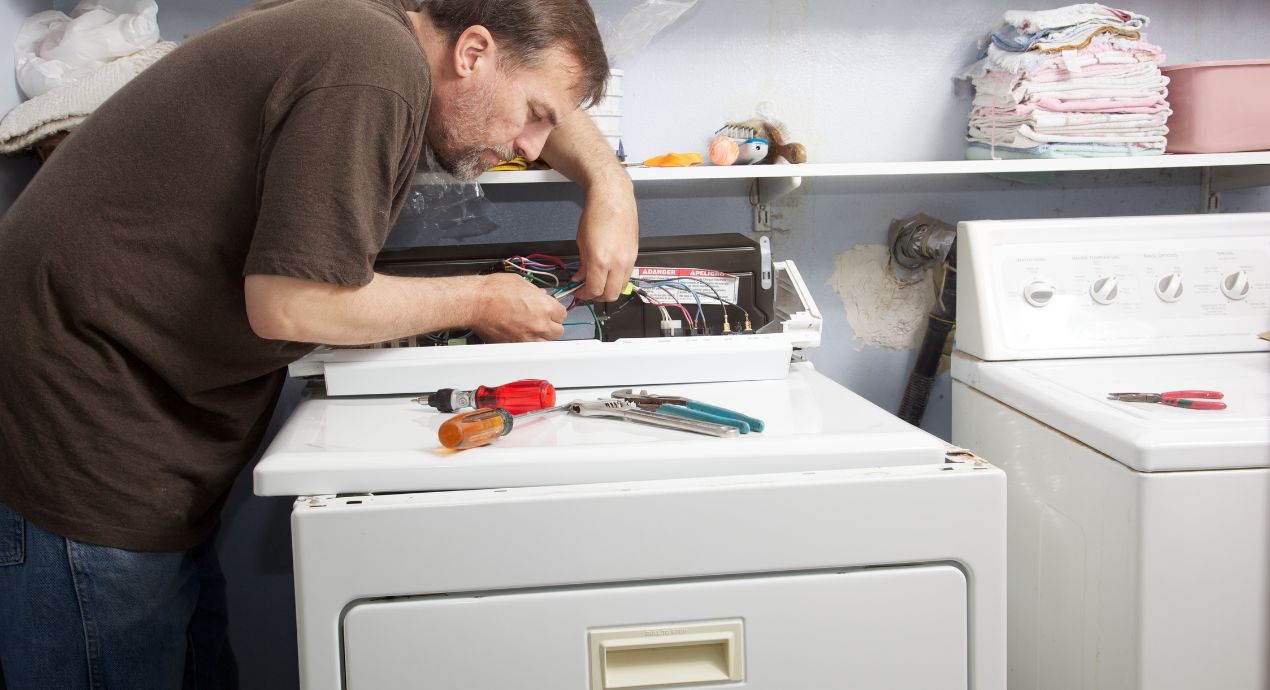
Contemplating coverage?
Subscribe to receive our emails & get
$200 off!
Have questions?
Call us: (833) 544-8273


Written By Roger Marx
Antique and vintage kitchen appliances can lend a unique aesthetic to your home. A free-standing farmhouse stove or seafoam refrigerator with chrome accents evoke a nostalgic, retro quality that modern appliances can rarely replicate.
Some homeowners are content to use vintage electric stoves, refrigerators, iceboxes, and so on as decorative statement pieces. They use modern appliances for the actual cooking and cooling. But others are interested instead in vintage equipment that serves a functional purpose. If you count yourself among those in this latter camp, be aware that vintage stoves, ovens and refrigerators often require special care—both for your own safety and for the continued functionality of the appliance.
In this article, Liberty Home Guard will review some critical information to keep in mind if you plan to install and use a vintage appliance in your home.
There's a reason Liberty Home Guard was rated the #1 Home Warranty Service by U.S. News and World Report for 2021, 2022, 2023, and 2024. Check out our services.
Learn MoreVintage kitchen equipment is more likely to use outdated materials and designs. The very basis of an appliance’s operation may differ radically from what we are accustomed to today. For example, modern refrigerators most often use isobutane, a colorless and odorless gas, as a refrigerant. Older fridges use Freon, which is increasingly unavailable in the U.S. as the government phases it out for environmental reasons. Still older fridges—from the 1920s and earlier—used a combination of ammonia, methyl chloride, and sulfur dioxide gasses to keep things cool. These are toxic gasses, and there are documented cases of refrigerator gas leaks killing people in the early 20th century.
If you’re exploring vintage appliance brands for a retro aesthetic in your home, consider the safety implications. Below are some possibilities to keep in mind.
If you accept the potential risks that come with owning and using appliances from decades past, you should get as much specific information as possible about the equipment’s history and how to maintain it.
Whenever possible, purchase appliances that are older from a reputable dealer. If you find an old appliance at an estate sale or online community marketplace, have the unit inspected by a technician who specializes in vintage appliance repair.
Wherever you make your purchase, press the seller for detailed information on the appliance. Below are some questions to ask.
Of course, do your research ahead of time. Resist an impulse purchase and study vintage appliances and manufacturers if you’re interested in investing in an older machine. Without knowing what you’re getting into, an unwise purchase can result in sunk costs at best. At worst, you’re putting yourself and your home in danger.
Once you’ve obtained a vintage refrigerator, stove, or another unit, keep a structured maintenance schedule. Regular service is important for any home appliance, but it’s especially critical for appliances that are many decades old or designed with outmoded materials or mechanisms.
Confirm with a licensed and experienced specialist that the component parts of your appliance are in good shape. It’s possible to find a unit that may have been superficially refurbished, but the internal components could be corroded, dirty, or deteriorating. An expert should inspect any wiring, fittings and valves, seals, glass, securing mechanisms, hinges—essentially every component part.
If necessary, consult with the original seller or find an authorized reseller of vintage refrigerator parts and other kitchen appliance components. Experts can help you identify the precise components you need, and they may be able to recommend a safe and suitable replacement if the original part is no longer manufactured.
Bear in mind that some appliance parts or consumables may be so outmoded that you will have difficulty locating even a proximate replacement. In such a case, you may want to consult with an appliance specialist who can retrofit your appliance to be compatible with modern materials. This will give you the best of both worlds: a retro aesthetic and modern performance and safety.
Any home appliance is an investment. You pay a significant amount of money upfront with the expectation that your machine will work efficiently for many years to come. Of course, life isn’t always that simple. Appliances develop issues as they age, and even a new appliance can suffer from a breakdown from normal wear and tear.
Fortunately, you can support your appliances with home warranty coverage. If one of your units breaks down from wear and tear, Liberty Home Guard can dispatch one of our partnered technicians to diagnose and resolve the problem.
Not every vintage appliance is necessarily eligible for warranty coverage. The nature of its design or history may make a warranty impractical. But as a rule, Liberty Home Guard does not disqualify an appliance for coverage because of its age. Whether your appliance is brand new or of a vintage year, reach out to our team to learn more about how you can save money on inevitable repairs. Call (866)-432-1283.
Stay Ahead of Potential
Home Mishaps!
Subscribe to our Liberty Home Guard Newsletter and gain access to exclusive content that ensures your peace of mind.